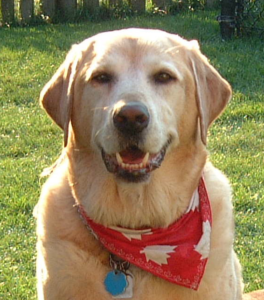Declutter your Memoir
 Recently, I had to mop up a flood in my basement, which forced me to move a lot of stuff I’d been storing, keeping and generally shoving out of sight and out of mind, some of it for decades.
Recently, I had to mop up a flood in my basement, which forced me to move a lot of stuff I’d been storing, keeping and generally shoving out of sight and out of mind, some of it for decades.
You know the kind of thing…”Oh, that’s useful. I’ll keep it until the other one, the one I’m using right now, breaks or wears out or runs out of power/ink/paper” (or whatever is necessary to keep it running).
Or, “That belonged to my grandparents. It’s worth something. Maybe Antiques Roadshow will pay me a lot of money for it.”

Or, “I just can’t throw out that old pink dog collar. It belonged to Jessie, my heart-dog when I was forty. It still has all her tags on it. I miss her so much.” (Just so you know, I’m in my seventies now and Jessie died five dogs ago.)
Over many years, we accumulate things, stuff, possessions, like the slow accretions of a snail’s shell, building layer on layer, until we have so much of it, it begins to weigh us down, holding us in place like a massive boulder we have to carry uphill. I have things that belonged to my parents, grandparents and even great-grandparents in my house — things I’ll never use, but which have enormous sentimental value.
Maybe one day I’ll write about them, but in the meantime, they’re taking up space. Like my grandfather’s microscope or the (now antique) copper sterilizer he used for his surgical instruments a hundred years ago. Like the booklet of hand-knotted tatting samples my great-grandmother would show her prospective clients so she could make some pin money while my great-grandfather was at sea for months on end in the eighteen-eighties. Or the now-ragged crocheted afghan my great-aunt finished on her 104th birthday. I daren’t throw those things out. They’re precious, but they are no longer relevant.
In the same way, when we write our memoirs, we want to hang onto all the memories. We want to record everything about our life because we don’t want it forgotten, so we end up writing this disconnected, bloated autobiography full of irrelevant facts and incidents that mean nothing to anyone but the author.
If we do manage to write a memoir about a specific set of circumstances, we fall so in love with our beautiful phrases, our carefully-crafted flights of literary genius and our exquisite language which practically sings, that we lose sight of the fact that our writing is meant to convey a message, a story, an experience, and the best way to do that is to make it relatable.
Keep What’s Important — Discard the Rest
Just as we need to declutter our surroundings, we need to declutter our stories. We need to distill them down to their essentials. This doesn’t mean that we need to write only the bare facts, stripping them of their emotion and their impact. On the contrary. We need to identify what it is about these memories that gave them their power in the first place.
We remember things because they’re somehow important to us. They have emotional significance. As memoirists our job is to identify that significance and write about it.
The events about which we write are only the vehicle that set in motion the way we feel about what happened. It’s the emotional resonance of those events that’s at the heart of our stories. That’s why readers read, so they can experience what we experienced. So we need to focus on the way we processed the events and write about that experience, the emotional, visceral, gut-wrenching emotion, not simply what happened. It’s an inner-focused type of storytelling, not a documentary.

Just like a hoarder who can’t throw anything away, we hoard our secret pain and live our lives doing everything we can to avoid facing it, or god forbid, letting others see it. When we write about our lives, we don’t open ourselves up to the pain or show it to others.
But don’t you see? That openness and vulnerability are exactly what makes the story compelling. Everybody has some kind of hidden pain, some secret they’re hiding, from themselves and from the world, but every secret has a weight to it and, like that boulder, you can only carry it for so long. Eventually, you have to face and overcome it. It’s that transformation that readers crave.
There’s a reason why so many memoirs are stories of ordinary people overcoming overwhelming odds or unthinkable adversity. As readers, we want to believe that we too are capable of similar courage, strong moral code and the courage of our convictions.
How to Write a Great Memoir
Memoirs take many different forms. A great memoir might be a short story, a personal essay, or a documentary. It could be a short essay about a single event that had a profound effect on the author, or a series of connected events tied together by one underlying theme.
It could be simply an amusing anecdote that becomes hilarious by using a bit of exaggeration or it could be a book about a major change or transformation in the author’s life. A great memoir might be a full-length novel about the events leading up to and including an “aha” moment or life-changing decision. It could be a learning experience or an adventure. It could even be a whole series of books, each one focusing on a connected sequence of events, and all thematically connected in some way.
But each and every one of these types of great memoirs has one thing in common. They’re about the writer. Not what he or she said or did. Not the events that happened to them. The writer. Who that person is, what they think, how they feel and why. The stuff, the clutter, all falls away and the writer’s personality shines through with honesty, integrity, vulnerability and authenticity.
![]()
Decluttering Exercise:
Just for fun, let’s do a little decluttering exercise of our own:
1. Go into your office, your bedroom, your garage, any room in your house or apartment, even your car or garden, and look around. If there’s a space that needs a little TLC, start doing some decluttering. As you pick up each object to toss or keep, think about the emotional attachment you may have to it. Perhaps there’s a favourite pen you like to write with, or your computer or tablet. Maybe there’s a plant you love or one you hate, or in the garage, closet or attic, evaluate the “stuff” you keep there, “just in case” or “for someday”. What about family heirlooms?
2. Now pick one of these objects, the one with the most emotional resonance, and write something about it. Let your imagination run free.
- When did you acquire it and why?
- Recall what it meant to you when it came into your life and what it means now.
- What would it feel like if you didn’t have it anymore?
- What emotions are attached to it?
- What memories does it bring up?
- Does it inspire any secondary impressions beyond the ones immediately associated with it?
- Include as much emotion, honesty and vulnerability as possible and relate these emotions to your experiences with the article, how it figured in your life, why you kept it.
You may surprise yourself with the depth of feeling this exercise brings out in you.
Happy Writing!

Beverley Hanna
Trained as an artist in the late 1960’s and early 1970’s, I was one of the first creatives to be employed in the computer graphics industry in Toronto during the early 1980’s. For several years, I exhibited my animal portraiture in Canada and the U.S. but when my parents needed care, I began writing as a way to stay close to them. I’ve been writing ever since. I run a highly successful local writer’s circle, teaching the craft and techniques of good writing. Many of my students have gone on to publish works of their own. I create courses aimed at seniors who wish to write memoirs, with a focus on the psychology of creatives and the alleviation of procrastination and writer's block.
